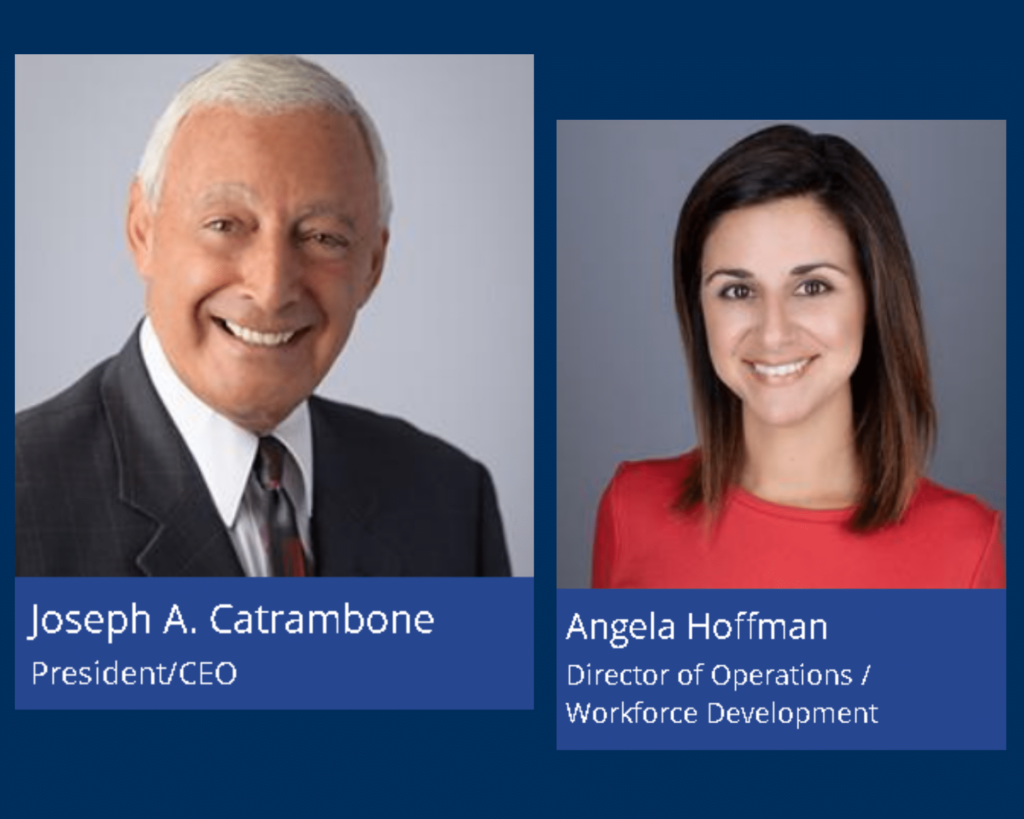Career Connect Martin brings hires, employers together at their best
A recent Channel 25 News report called an innovative new program by the Stuart/Martin County Chamber of Commerce a “win-win” for creating solutions in the challenging job market—and it’s easy to see why.
Career Connect Martin is gaining momentum—and building excitement—by removing the obstacles separating people eager to improve their marketability from employers hesitant to take a chance on unproven prospects.
The new program enables the unemployed and underemployed to access paid positions at companies with good pay and room for advancement. Participating businesses represent core industries and local Hubs of Excellence such as construction trades, manufacturing, logistics and distribution, health care, agriculture, automotive and transportation, information technology and more.
Meanwhile, Career Connect Martin participants receive professional coaching and on-the-job training—as well as childcare and transportation as needed.
To learn more, we caught up with Joe Catrambone, chamber CEO and president, and Angela Hoffman, the chamber’s director of operation and workforce development (and former BDB chair).
What motivated the Stuart/Martin County Chamber to embrace this initiative now?
Joe: In 1989, I took a survey of our members. The No. 1 complaint was, ‘We can’t hire people.’ I gave the poll again in 2020. The same response was, ‘We can’t hire people.’ So, I told my board of directors that we needed to refocus with an emphasis on job creation.
What are some of the mechanics about how you put this together?
Joe: We learned of a grant proposal that could provide funding through the federal American Rescue Act. So, we brought Angela Hoffman on board, and she wrote the grant, which got approved. Of course, we had to go through several regulatory hoops.
Angela: It took five months of research.
Joe: At times I got a little frustrated, dealing with changing federal guidelines, which we had to adjust to many times. But ultimately, we’re now able to hopefully fulfill a need for our members. Our members want to hire—so we’re putting them in a good position to hire trainees.
So, the program aims to remove much of the risk that might otherwise prevent employers from bringing on less-experienced prospects?
Joe: Yes. We cover the cost of the hire—at $15 an hour. But, if an employer is only paying $12 an hour, they’ll have to step up their game if they keep the hire on. Historically, businesses in Florida—and in general—underpay their people.
Angela: That’s what this program is designed to do—step up the game of the employer and sharpen the skills of the employees. This is providing both soft and hard skills for people looking for longer term careers in targeted industries in Martin County. We do five hours of skills training and coaching prior with them prior to the 120 hours of on-the-job training.
Joe: We also cover the costs of childcare and transportation for the job hires as needed.
When you speak of ‘soft skills,’ what are you referring to?
Joe: Some of those skills are the right attitude, dependability, following through with your commitments.
Angela: A key advantage for the participating employers, however, is they get to design the skill sets they’re looking for. It doesn’t make sense for us to tell someone how to build a Shearwater Marine & Industrial—that’s best for Shearwater to do. This at least it gives the trainee a firm foundation on which to learn.
Joe: Just as we prepare trainees, we vet the prospective employer and make sure there’s room in the company for advancement.
Angela: That’s why it’s a particular fit for employees but also challenges companies to think differently about what they offer the employee. In this market, it’s buyer’s choice. So now it’s the company choice to make their offer all-the-more appealing. They have to provide a job description with a salary, detailed plans and room for growth. Even if it is a small company, they can show a career lattice in that field so that person is gaining marketable skills for their resume.
Joe: It’s an agreement between us, the company and the career seeker—and we all have work to do to make this work.
Who are some of the participating companies?
Angela: Armellini Express Lines, where you can start in the warehouse and work your way up to certified CDL as a driver making $65,000 a year or more. Shearwater Marine, O’Donnell Impact Windows, City of Stuart. There’s CIS Security, which holds the patent for security devises on designer bags found in TJ Maxx and Marshall’s, but has customers that need to be shipped to from here so there’s a distribution aspect here in Stuart. UPS in Stuart is taking part, and they have a career pathway where hires could work their way up from front desk to manager. TCI Rood has opportunities for horticultural certifications for irrigation specialists, and Evergreen Private Care is offering training for people looking to become certified medical assistants and home health assistants.
Wow! That’s an impressive variety of career opportunities.
Joe: And it’s a learning experience for both parties—not only the employee, but the employer—who both need to step up their game.
How has Martin County helped?
Joe: They’ve helped a great deal. George Stokus (deputy county administrator) is on the top of things and he’s got a great business sense. I can’t say enough about the county commission for understanding and supporting this. The program got a 5-0 vote, which I think speaks volumes about our leadership and their ability to recognize the burden on employers who are trying to hire and keep people living here. Kudus to them for trying to solve this problem.
Angela: The county didn’t limit this just to people who are unemployed, but they included that ALICE (Asset Limited, Income Constrained, Employed) population that wants to climb up that ladder.
Joe: We have to target those low-income areas. There is no boundary as to who this program can help, and that’s exactly what it should be.
Are there any other chambers in other parts of the state focusing on services such as this?
Joe: No. I’ve been going to regional meetings in Boca and at the last one, no one was addressing this issue, so none that I know of. In fact, many other chamber executives where surprised and asked me, ‘The county is giving you money to do this?’ But locally, all of the chambers in Martin County (Jensen Beach, Hobe Sound, Palm City and Indiantown) have joined in—as well as the BDB. We have a coalition where everyone is taking part, helping out, sharing information and offering support to make it successful.
I’d imagine it will take that level of cooperation for the program to succeed going forward.
Joe: Absolutely. Afterall, this is a pilot program. If it’s successful and the community wants to continue it, we’ll have to figure out a way to fund it and be creative with it. But it really helps kickstart the businesses that are taking part in these training programs. It’s incumbent on us to be seeking support, as it’s just a trial. If we don’t meet the criteria the county requires, there won’t be any money next year. So, we really have to knock it out of the ballpark.


